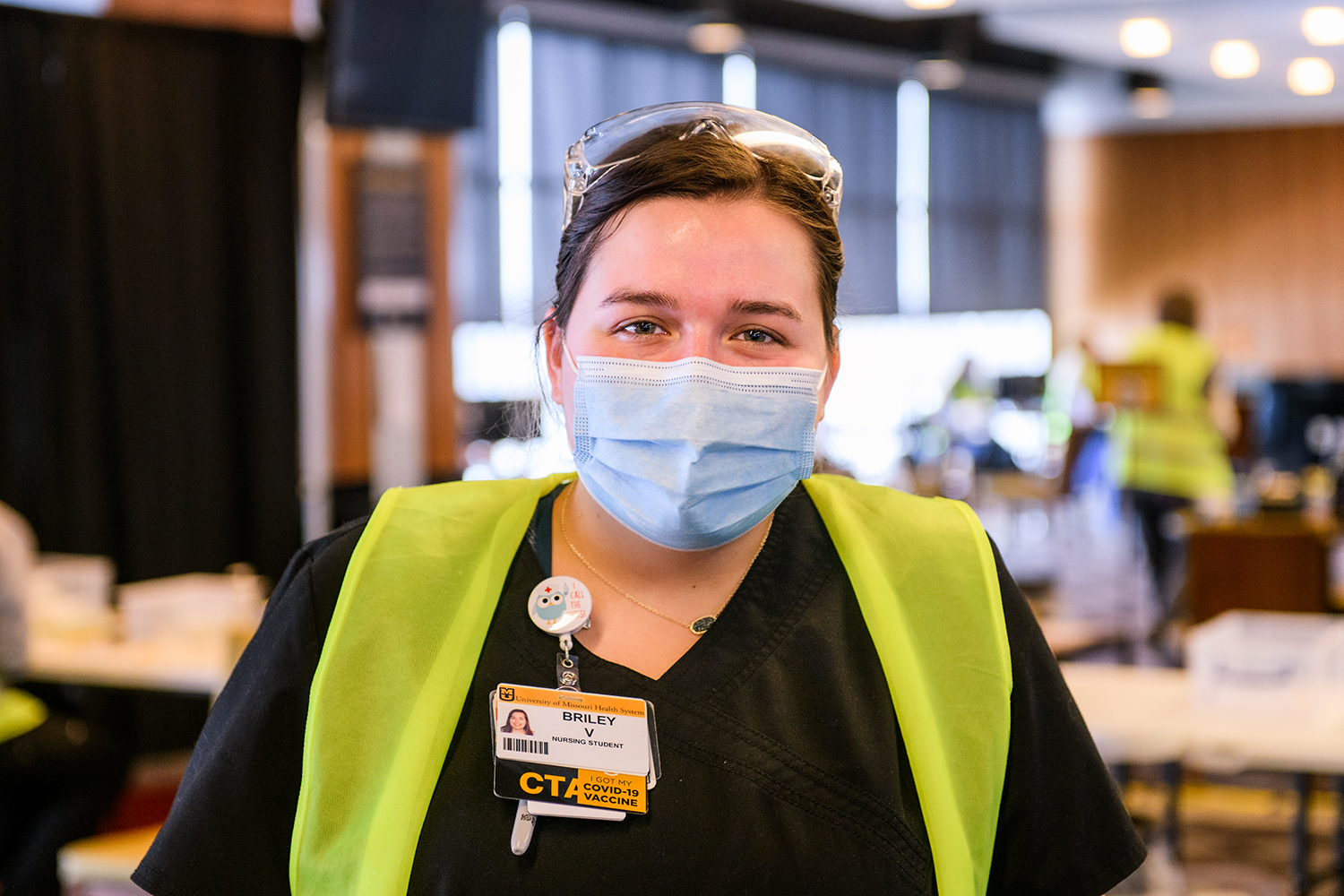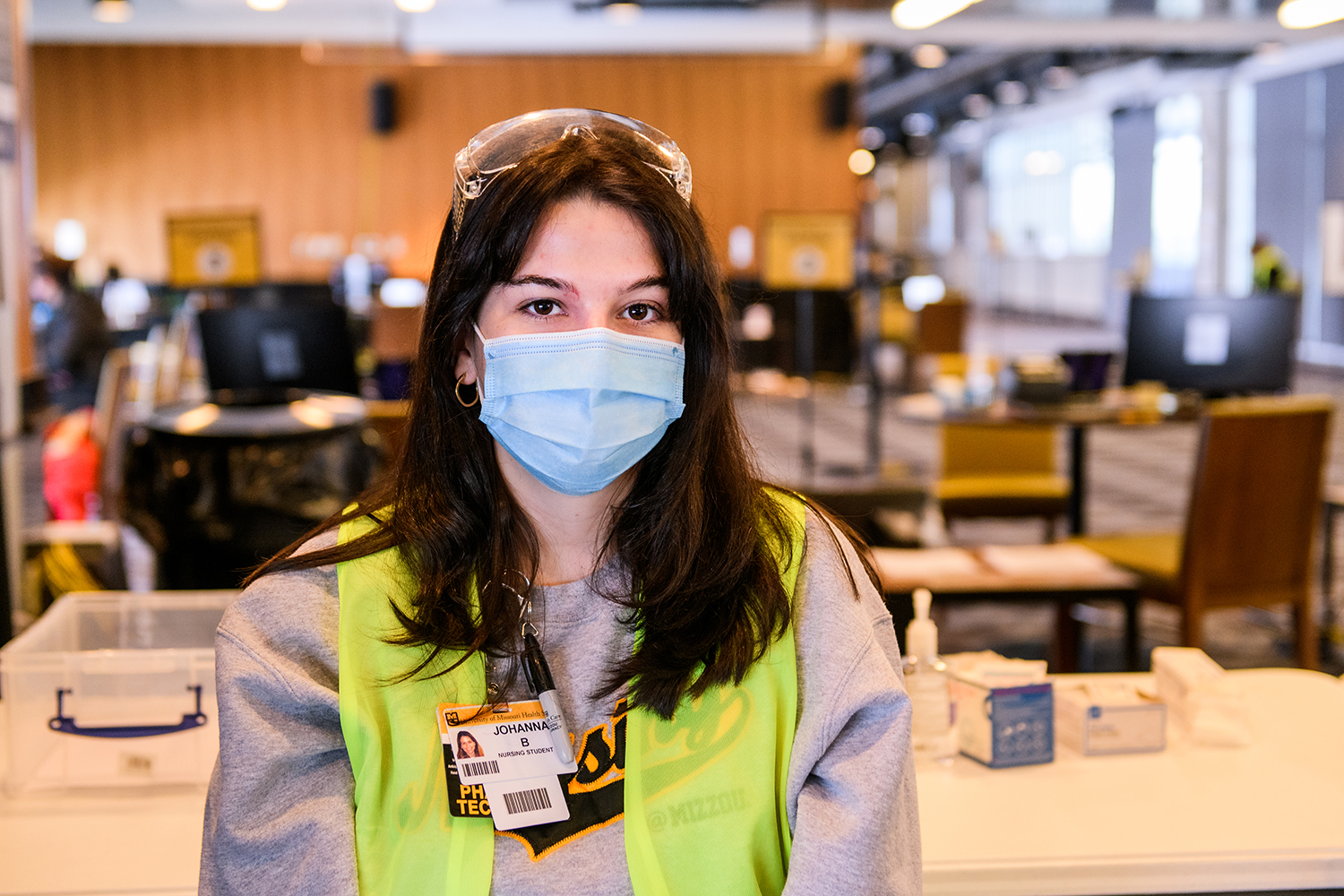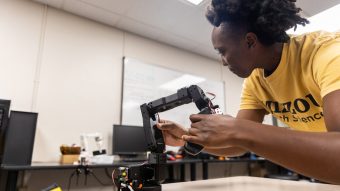Even during a pandemic, the Missouri Method is meeting the moment. Despite distance and difficulty, Mizzou students continue to participate in hands-on learning opportunities that serve our community and change the world. Here are a few of their stories.
Feb. 23, 2021
Contact: Kenny Gerling, gerlingk@missouri.edu
Since Feb. 4, more than 9,700 health care professionals, patient-facing University of Missouri students and high-risk community members have received COVID-19 vaccinations at the Walsworth Family Columns Club at Faurot Field. Hosted by MU Health Care and the Student Health Center, the clinic is not only an important step in the local fight against COVID-19, it’s also a vital learning opportunity for students in the Sinclair School of Nursing.
The clinic is largely — though not exclusively — staffed by those enrolled in Nursing in Communities, a course that requires students to provide at least 90 hours of care in non-clinical settings. The vaccines distributed are some of the first of their kind against COVID-19. For many students, it’s also their first opportunity to interact with patients face-to-face.
Being present
Briley Vessell, an accelerated nursing student, 2020 Mizzou graduate with a degree in health science and a patient care technician at University Hospital, volunteered at the clinic for six hours. Vessell said class and lab work prepared her well for the task at hand, but interacting with patients is something that can’t be duplicated elsewhere.
“The biggest thing wasn’t giving the vaccine but answering the questions people ask,” Vessell said. “Questions like: 'Am I going to have a reaction?' 'Does it hurt?' Along with the typical fear of needles.”
Johanna Bastas, another senior in the accelerated nursing program, a 2019 Mizzou grad with a degree in interdisciplinary studies and a pharmacy technician at University Hospital, agreed that having facetime with patients helped her feel more prepared for the types of interactions she will have as a nurse. “It’s easy to notice when people are nervous,” she said. “It’s important to talk them through it. It’s a big part of patient-nurse communication.”
Bastas said that even outside the clinic, people ask her a lot of questions about the vaccine. She said she directs them to the CDC for more information. “It’s safe,” she added “I encourage people to get vaccinated if they’re eligible.”
Meeting the moment
Hands-on, community-focused learning is a cornerstone of MU’s nursing program, said Mary Fete, an instructor for the Nursing in Communities course. Along with the MU clinic, her students have also volunteered to help with COVID-19 testing as well as at other public health initiatives in Columbia and around Missouri, such as health screenings in Columbia Public Schools and vaccine clinics in Boonville and Mexico.
“Rural health organizations contact me all the time to see if our students can help them,” Fete said. “It’s part of MU’s mission to serve the community, and it brings tears to my eyes to think about all our students are doing.”
Throughout the pandemic, nursing students have played a critical role in the response to COVID-19, including over winter break when many volunteered to help with patient care.
“The more they have actual experiences, the more comfortable they’re going to be communicating and providing services both in-patient and in the community,” Fete added. “It’s vital to becoming a good nurse.
Vessell, reflecting on her own experience, agreed. “There’s only so much lecture and textbooks can teach you,” she said. “A lot of nursing is learning as you go, having a good foundation and then building off of that with experience.”
Photo gallery: Health care students give — and receive — COVID-19 vaccinations





